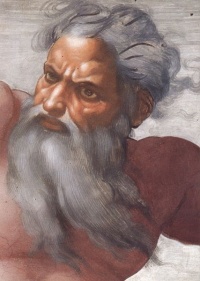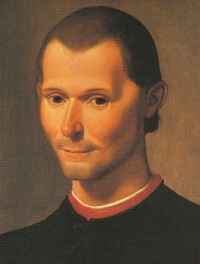Government
From The Art and Popular Culture Encyclopedia

Image: detail of Sistine Chapel fresco Creation of the Sun and Moon by Michelangelo
|
Related e |
|
Featured: |
A government is the organization, or agency through which a political unit exercises its authority, controls and administers public policy, and directs and controls the actions of its members or subjects.
Typically, the term "government" refers to the civil government of a sovereign state which can be either local, national, or international. However, commercial, academic, religious, or other formal organizations are also governed by internal bodies. Such bodies may be called boards of directors, managers, or governors or they may be known as the administration (as in schools) or councils of elders (as in forest). The size of governments can vary by region or purpose.
Growth of an organization advances the complexity of its government, therefore small towns or small-to-medium privately operated enterprises will have fewer officials than typically larger organizations such as multinational corporations which tend to have multiple interlocking, hierarchical layers of administration and governance. As complexity increases and the nature of governance becomes more complicated, so does the need for formal policies and procedures.
See also
Levels of civil government:
- World government
- Supranational union
- Sovereign state
- Province
- County
- Regional government
- Municipality
- Village or neighborhood


